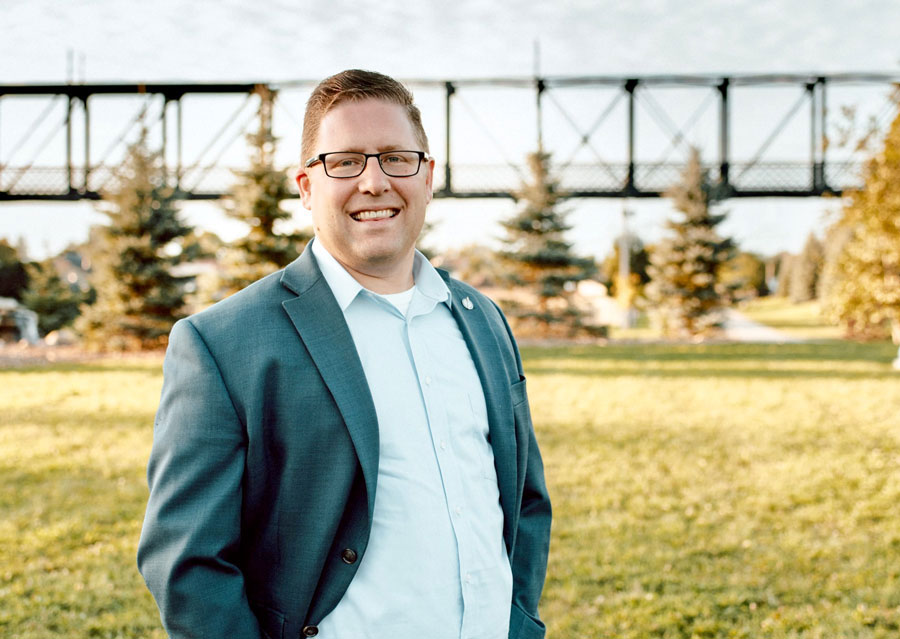OTTAWA – If it were up to Perth-Wellington MP John Nater, Wellington-Halton Hills MP Michael Chong would be the next leader of the Conservative Party of Canada.

MICHAEL CHONG
“With apologies to Carrie Chong … I think Michael Chong should consider putting his name forward. I think he’d be a great asset to our party as party leader and I hope he hope he strongly considers running,” said Nater in a Feb. 4 telephone interview from Ottawa.
O’Toole was ousted on Feb. 2 by a vote of the Tory caucus in the first ever application of a section of the Reform Act that allows the party’s MPs to instigate a leadership review. In a secret ballot Conservative MPs voted 73-45 to remove O’Toole from his leadership role.
So far, only Carleton MP Pierre Poilievre, who announced his candidacy on via social media on Feb. 5, has formally entered the leadership race.
Whoever the next leader is, Nater feels they should be “a bridge builder.
“If we look at the Conservative Party over the last six years I’ve been an MP, we’re now on our fifth leader. The permanent leader who gets chosen whenever the election or leadership race ends will be our sixth leader in a little over six years. So whoever comes in has to be someone who can bring people together, build bridges, and find consensus within the party going forward,” Nater stated.
He added “putting forward a plan and a vision for the country going forward” should be a key priority for the next leader.
“We have to put forward a vision that Canadians can see, that Canadians can identify with, focusing really on the issues and the priorities that matter to them,” Nater stated.
“So often we get hung up on inside baseball issues and things that really don’t matter to people in their everyday life. But I know from knocking on doors in the last election, the phone calls and the emails and the one-on-one conversations, there were a lot of concerns out there from constituents locally and across the country,” he added, citing housing and cost of living issues as key citizen concerns.
“These are the issues that really matter to people on a day-to-day basis. I don’t think we’re doing a good enough job raising those issues, or providing solutions to the issues that really matter.”
Nater feels the decision to change leadership was motivated in large part by the result of the last federal election, which left the Conservatives in opposition.
“No one goes into an election hoping to lose,” he stated.
“While there were some positive outcomes in the election – we did, once again, win the popular vote, we did pick up seats in some parts of the country that we haven’t for some time – we did lose two seats overall and obviously didn’t form government,” said Nater, adding “unhappiness grew to such a point that a number of colleagues decided that it was time to trigger the Reform Act.”
Nater said he was disappointed by the turn of events.
“I’ve known Erin O’Toole since before either of us were in politics and now he’s a good friend and given a lot to our country and our party,” said Nater. “I think it was disappointing that he’s now out as leader, but I guess now the big thing is we have to focus on what’s next … and what we propose to Canadians whenever the next election might be.”
Nater, who’s won his riding three times and held several shadow cabinet positions, including his current role as Canadian Heritage critic, says he has given no consideration to running for the top post himself.
“I think there’s a lot of strong candidates who will be putting their names forward … I’ll let them lead the party and they’ll have my support when they do,” he stated.
Nater was asked if, with centrist O’Toole deposed, the party could be expected to shift to the right.
“The Conservative Party has always been a coalition of various perspectives,” he replied.
“Whether it’s the red Tory wing, or the fiscal conservatives, or the social conservatives coming together, I think … the new leader is really going to have to focus on what unites all those factions in the party. What are the issues where we can all agree on and focus on those issues.”
He added, “I think some of those issues are things like cost of living, things like affordability …. support for the Canadian Armed Forces, support for those who are struggling, those types of things.
“I think that’s probably more the important issue going forward, rather than trying to deal with any one particular subset of the party.”
Political blame game
Newly-installed interim party leader Candice Bergen quickly made news when a leaked email to senior caucus members suggested plans to politicize the ongoing “Freedom Convoy” protest in downtown Ottawa.
“I don’t think we should be asking them to go home,” reads the Jan. 31 email. “We need to turn this into the PM’s problem.”
“I think that statement was unfortunate. I think at this point in time, we need to be finding solutions, moving forward,” said Nater when asked about the comments.
“And I don’t think it matters, who’s in the prime minister’s office or where we sit in the House of Commons. The focus now has to be where we move forward, how we solve the situation and I don’t like the idea of … trying to, you know, throw blame at the prime minister himself, just for the sake of putting him on the spot.
“Maybe it was typed in the heat of a thought. But, I think that going forward what we really need to do is find solutions and that’s what I think people expect.
“They don’t want to see finger pointing or a political blame game being played out.”
‘Freedom convoy’
Earlier in the week, Nater was asked for his thoughts on the convoy that has been protesting against vaccine mandates and other grievances in downtown Ottawa since Jan. 29.
In a written statement provided on Feb. 2, Nater said, “All Canadians have the constitutional right to protest and demonstrate peacefully.
“It is important in our democracy that Canadians are free to criticize their government and hold it to account for the decisions it has made.”
However, Nater pointed out the right to protest also includes “responsibility and respect for the rights of others, respect for property, respect for diversity, and respect for the symbols of this country.
“Harmful rhetoric, dangerous accusations, and intolerance for the views of others will only lead to further division and will not solve the challenges our nation faces,” he stated.
Nater says he has been “deeply disturbed by the images of divisiveness and intolerance we have seen flaunted over the past several days in downtown Ottawa, including acts that have desecrated sites and landmarks which are prominent symbols of the freedom we value so highly in this country.”
Calling on everyone “from the prime minister to each protester” to de-escalate the situation, Nater said further disruptions to supply chains will only make things worse for Canadians who are already struggling.
“The government has a responsibility to listen to Canadians as they consider their actions and make the best decisions possible, even under difficult circumstances.,” Nater stated.
“Unfortunately many Canadians, including some truck drivers, feel they are not being heard.”
With Parliament resuming, Nater indicated he hopes “we will all listen to reason and to each other, and work together in the best interest of all Canadians.”




